Technology Time - Newfoundland & Labrador Style
In the market for innovative maritime, offshore and subsea technology? If so, it’s a good bet that your colleagues in Newfoundland and Labrador already have it … or will create it!
If you happen to be in Halifax this week for Oceans 2024, be sure to stop by the Canada Pavilion Booth number 500 to visit with some of the following companies and many more.
Newfoundland and Labrador (NL), Canada’s easternmost province, is a hub of maritime activity, befitting its 29,000 km (about 18,000 mi) of coastline and rich history of seafaring and fishing. Your reporter, MTR’s Halifax bureau chief, made the quick trip to St. John’s, NL’s capital, to explore the diversity and innovation of maritime companies that call the province home. techNL is a not-for-profit membership association that enables a thriving innovation-driven economy in NL, providing visibility, business growth services and a collective influential voice. The maritime sector offers immense potential for technological advancement and innovation, supported by the Marine Institute, Canada’s Ocean Supercluster, Genesis, Launch and more recently, Co. Innovation Centre, said CEO Florian Villaumé. “What excites me most,” he noted, “is the collective drive within this ecosystem to foster collaboration and accelerate technological development.” He sees the future of the sector being influenced by climate change and AI, with techNL playing an important role to integrate innovations.
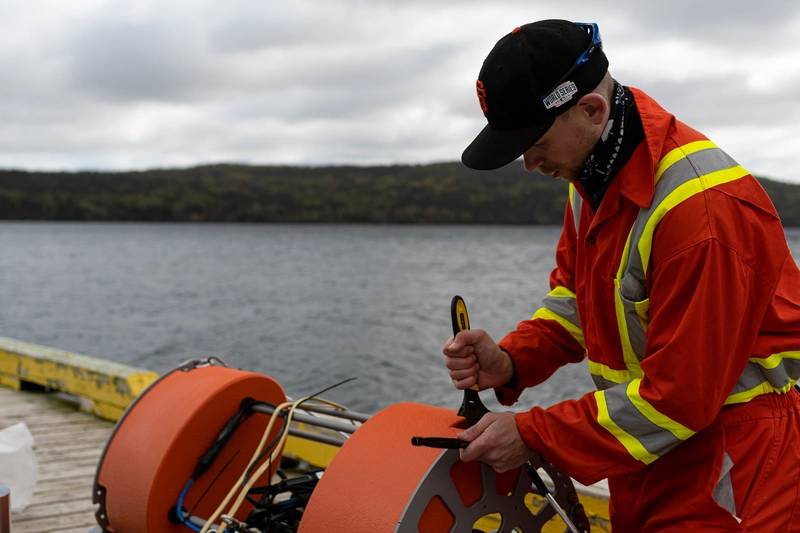 A SubC Imaging technician prepares a Tow Camera System for sea trials, ensuring it can withstand the harsh marine environment. © SubC ImagingSubC Imaging specializes in creating modular, scalable and adaptable underwater optical imaging systems for precise and efficient inspections and surveys, even in the most challenging environments—some of which are right at its doorstep. “This region’s rich maritime heritage and proximity to some of the world’s harshest and most complex marine environments drive us to innovate,” explained Chad Collett, cofounder and CEO. “Being here means we’re constantly inspired and challenged by the conditions that our technology is designed to thrive in, and it’s incredibly rewarding to see our solutions making a real impact globally, all while staying rooted in the community that shaped us.” This environment becomes even more important, Collett added, as the industry shifts towards durable, efficient and data-driven operations, as well as increased collaboration within NL and beyond.
A SubC Imaging technician prepares a Tow Camera System for sea trials, ensuring it can withstand the harsh marine environment. © SubC ImagingSubC Imaging specializes in creating modular, scalable and adaptable underwater optical imaging systems for precise and efficient inspections and surveys, even in the most challenging environments—some of which are right at its doorstep. “This region’s rich maritime heritage and proximity to some of the world’s harshest and most complex marine environments drive us to innovate,” explained Chad Collett, cofounder and CEO. “Being here means we’re constantly inspired and challenged by the conditions that our technology is designed to thrive in, and it’s incredibly rewarding to see our solutions making a real impact globally, all while staying rooted in the community that shaped us.” This environment becomes even more important, Collett added, as the industry shifts towards durable, efficient and data-driven operations, as well as increased collaboration within NL and beyond.
Nditive3D specializes in real-time gas detection and predictive analysis using an AI-powered monitoring system and patent-pending sensor technology. Ideal for high-risk industrial environments, Nditive3D serves chemical plants, manufacturing facilities, offshore energy, the mining industry and marine transportation.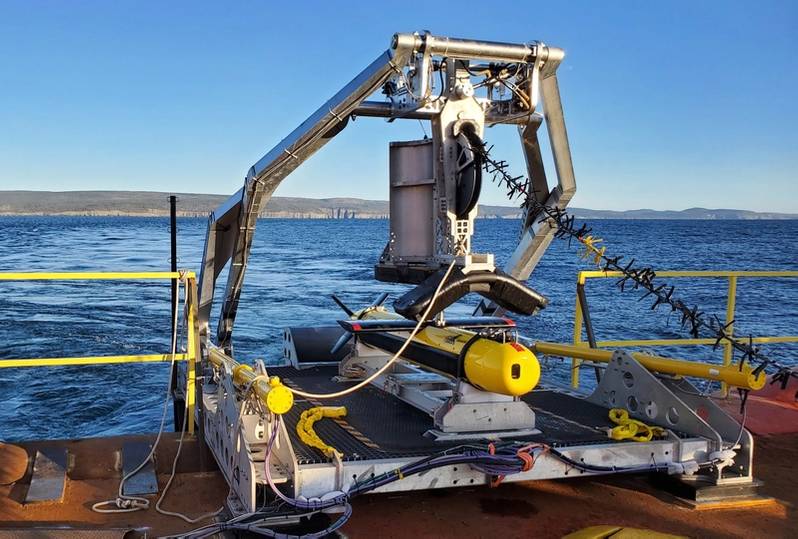 Kraken KATFISH towed synthetic aperture sonar system and autonomous launch and recovery system.
Kraken KATFISH towed synthetic aperture sonar system and autonomous launch and recovery system.
© Kraken RoboticsKraken Robotics provides complex subsea sensors, batteries and robotic systems, with a focus on seabed intelligence. The company is driven not only by NL’s dynamic and unpredictable weather—“As we often say, ‘If you can make it work here, you can make it work anywhere,’” said David Shea, executive vice president and chief technology officer—but also by the culture of innovation and resiliency amongst the people. The future, he added, is defined by fostering and growing innovative capabilities: “The maritime sector in NL needs to be focused not just on what we can consume domestically, but what can be exported to customers across the globe, to leverage and sustain our oceans.”
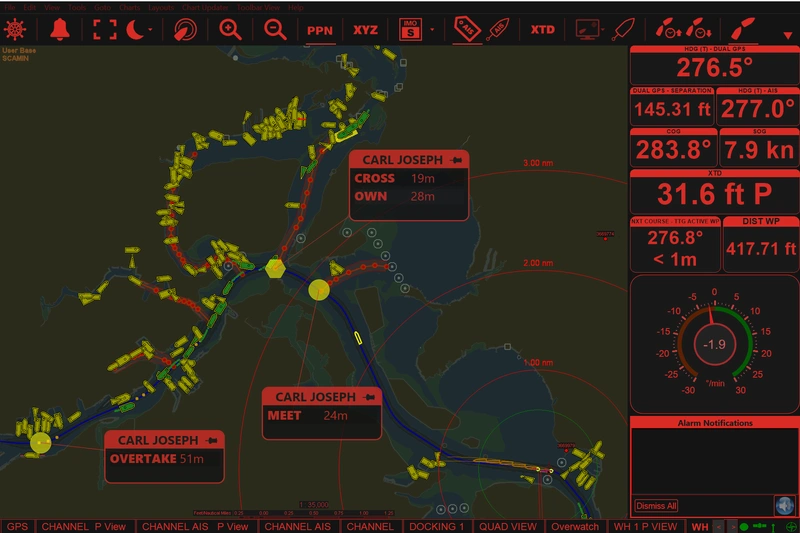 NavSim’s ARGUS Portable Pilot Unit (PPU) software system.
NavSim’s ARGUS Portable Pilot Unit (PPU) software system.
© NavSim Technology Inc.NavSim Technology is an electronics company that offers an advanced suite of portable navigation systems and services to marine piloting and other specialized commercial and government clients. NavSim is focused on the future as the industry moves towards integration into cloud, quasi-cloud, and network-based interconnectivity, said James E. Locke, vice president of marketing and finance. Locke takes personal pride in the growth of NL’s maritime industry to meet industry and government goals: “The successes in marine technology that has occurred here in the province underscores dramatically that the larger marine centers and regions around the world have no monopoly on vision, innovation or excellence.”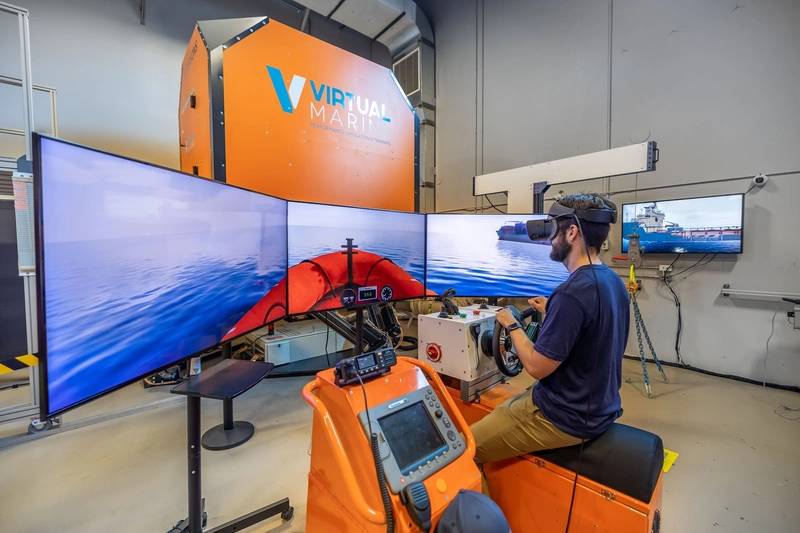 Virtual Marine Fast Response Boat Simulator.
Virtual Marine Fast Response Boat Simulator.
© Phil St. AubinVirtual Marine specializes in maritime training simulators for lifeboats, fast-response craft and ice management, offering hands-on and realistic training. The harsh environment of the North Atlantic builds the confidence and competence of seafarers, explained President and CEO Randy Billard. Partnering with the National Research Council of Canada and Memorial University of Newfoundland builds expertise for multiple markets, including defense, oil and gas, as well as shipping. Looking ahead, Billard foresees an increasingly digital world requiring technology access anytime, anywhere. “Maritime businesses will have to formulate solutions that can be accessed remotely while still providing high value,” he said. Virtual Marine appears well poised to meet these demands through its implementation of artificial intelligence and machine learning.
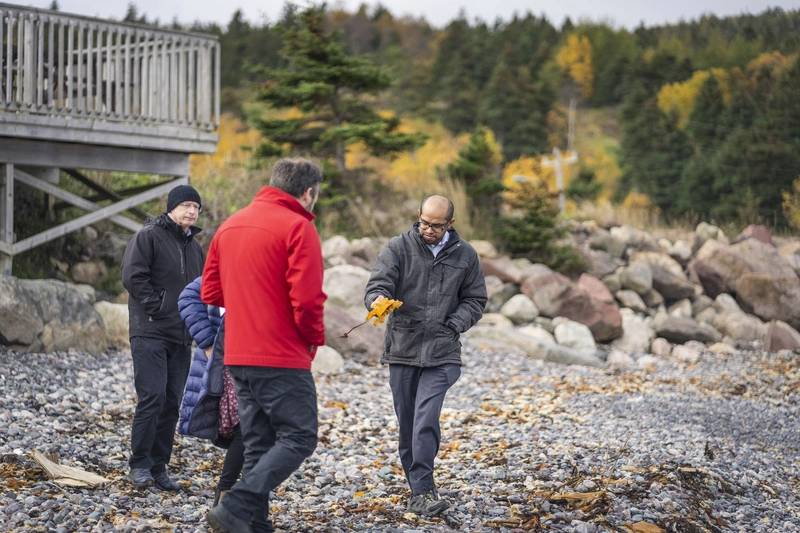 Local seaweed and its bioplastic potential.
Local seaweed and its bioplastic potential.
© EconextBioLabMate targets plastic pollution, utilizing seaweed-derived materials to create sustainable labware, which are typically derived from petroleum and quickly disposed of after one use. Being based in NL, cofounder and CTO Sanjay Dubey and cofounder and CEO Sarika Kumari explained, allows the company to draw inspiration from the region’s connection to the ocean. “The proximity to abundant natural resources, particularly seaweed, is a unique advantage,” they added. Additionally, as the global focus shifts towards minimizing environmental impact, it’s crucial for companies to explore and integrate sustainable solutions and practices.
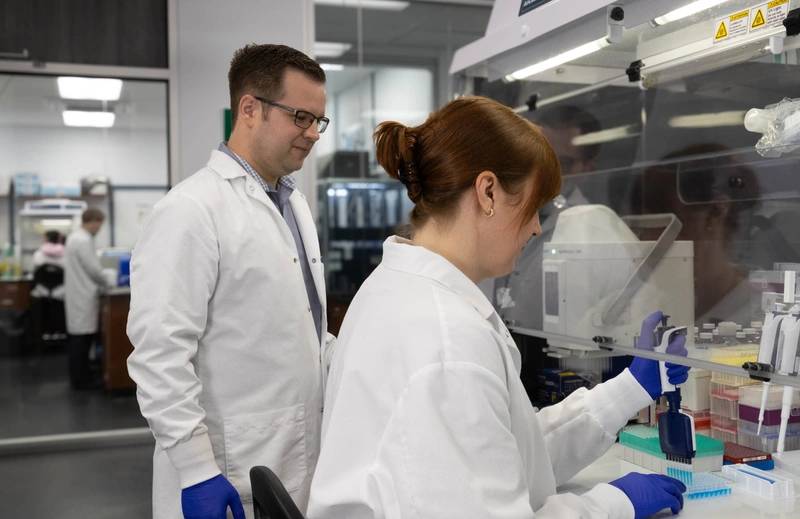 eDNAtec team members working in the lab.
eDNAtec team members working in the lab.
© eDNAteceDNAtec leads in environmental genomics, providing standardized environmental DNA (eDNA) solutions that empower stewardship across marine, terrestrial and offshore ecosystems. The company should be well poised as the maritime industry moves towards sustainability, explained CEO Steve Barrett, who expressed pride in eDNAtec’s locally made solutions. “This environment is not just where we work; it's where we innovate,” he shared. “Our customers demand robust, reliable solutions that can withstand the toughest conditions, and NL provides the perfect proving ground to refine and harden our technology.”
Duxion Motors Inc. is an advanced motor design and manufacturing company offering an integrated motor/generator with split gearbox for maritime vessels that saves fuel, increases generator capacity and horsepower, has rapid dockside installation, and provides backup propulsion. The patent-pending design clamps onto a ship’s existing propeller shaft, allowing for quick conversion from diesel to hybrid electric.
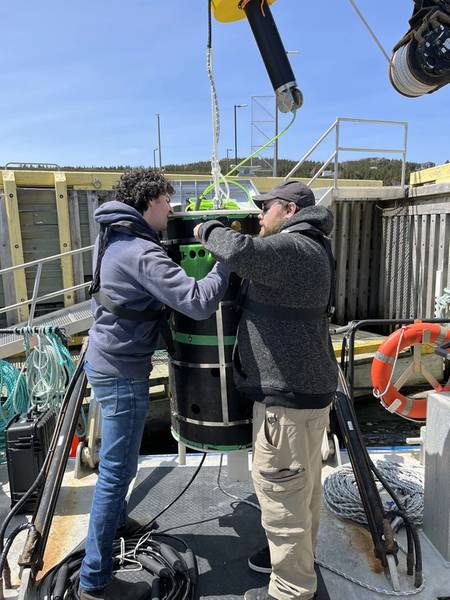 eSonar staff Matt Dinn and Cory Parsons preparing a hydrophone array mooring prior to deployment onboard the RV Lucy Pudluk at “The Launch” facility of Marine Institute (Memorial University).
eSonar staff Matt Dinn and Cory Parsons preparing a hydrophone array mooring prior to deployment onboard the RV Lucy Pudluk at “The Launch” facility of Marine Institute (Memorial University).
© Gary J. Dinn
eSonar Inc. improves access to subsea environmental data with sonar and underwater acoustics knowledge, including an Extended Development Team service that helps companies develop subsea technology, continuous marine vessel noise measurement capabilities, and an Autonomous Underwater Vehicle (AUV) perception sensor. At home, “NL-based companies get great exposure to commercial marine activities like offshore oil and gas support, cargo shipping, ice breaking, fishing (inshore and high seas),” said CTO Gary J. Dinn. “We have access to many world-class research facilities,” he added. As with many other NL companies, eSonar Inc. looks to further integrate into international supply chains.
From monitoring and navigation to electrification and bio-solutions, Newfoundland and Labrador companies are well-versed in emerging maritime technology challenges. The future of the industry, as many executives noted, will be driven by sustainability, innovation and collaboration. With that prediction and with businesses poised to meet evolving demands, all eyes should look to Canada’s north and east.




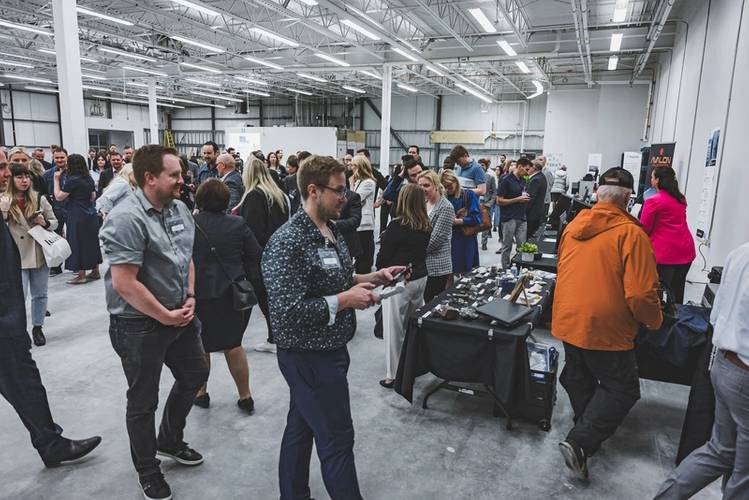
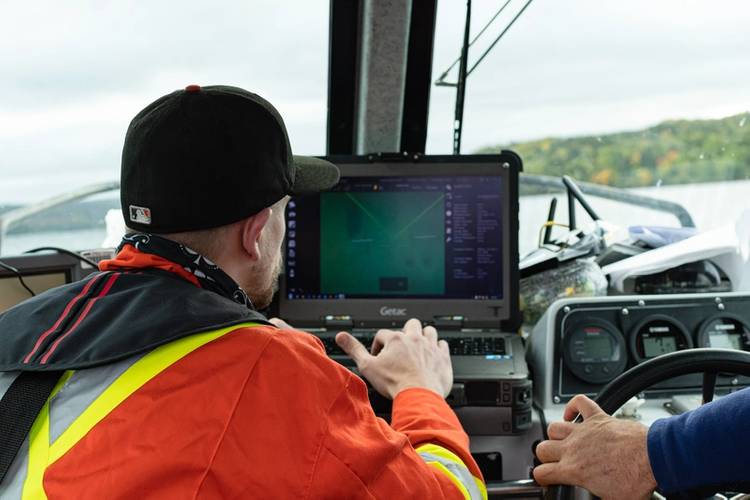
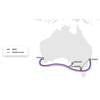
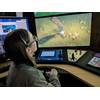

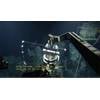
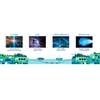
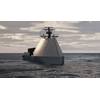






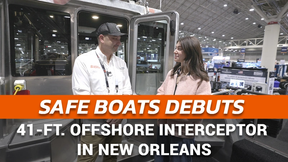
 December 2025
December 2025



